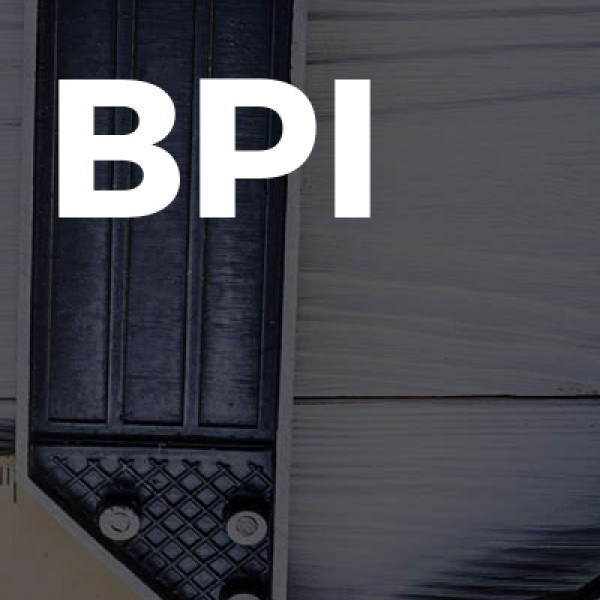Loft Conversions in Lincolnshire
Filter your search
Post your job FREE and let trades come to you
Save time by filling out our simple job post form today and your job will be sent to trades in your area so you can sit back, relax and wait for available trades to contact you.
Post your job FREESearch Loft Conversions in Lincolnshire by town
Understanding Loft Conversions in Lincolnshire
Loft conversions in Lincolnshire have become a popular way to add space and value to homes. With the county's charming mix of rural and urban settings, homeowners are increasingly looking to maximise their living areas without the hassle of moving. This article explores the ins and outs of loft conversions, offering insights into the process, benefits, and considerations specific to Lincolnshire.
What is a Loft Conversion?
A loft conversion involves transforming an unused attic space into a functional room. This could be a bedroom, office, playroom, or even a bathroom. By converting the loft, homeowners can effectively increase their property's living space, making it a practical solution for growing families or those needing extra room.
Benefits of Loft Conversions
Loft conversions offer numerous advantages. Firstly, they increase the living space without altering the property's footprint. This is particularly beneficial in Lincolnshire, where preserving outdoor space is often a priority. Additionally, a well-executed loft conversion can significantly boost the property's market value, making it a wise investment.
Cost-Effectiveness
Compared to building an extension, loft conversions are generally more cost-effective. They utilise existing space, reducing the need for extensive groundwork or structural changes. This makes them an attractive option for budget-conscious homeowners.
Energy Efficiency
Modern loft conversions often include improved insulation, which can enhance the home's energy efficiency. This is especially important in Lincolnshire, where the climate can be quite variable. Better insulation means lower energy bills and a more comfortable living environment.
Types of Loft Conversions
There are several types of loft conversions, each with its own set of benefits and considerations. The choice largely depends on the existing roof structure and the homeowner's needs.
Roof Light Conversion
This is the simplest and most cost-effective type of loft conversion. It involves installing windows into the existing roofline, allowing natural light to flood the new space. Roof light conversions are ideal for homes with ample headroom.
Dormer Conversion
A dormer conversion extends the existing roof, creating additional headroom and floor space. This type of conversion is popular in Lincolnshire, as it can be adapted to suit various architectural styles.
Mansard Conversion
Mansard conversions involve altering the roof structure to create a flat roof with steeply sloping sides. This type of conversion offers the most space but is also the most complex and costly. It's often chosen for properties in urban areas of Lincolnshire where space is at a premium.
Hip to Gable Conversion
This conversion is suitable for homes with a hipped roof. It involves extending the gable wall and altering the roofline to create more space. Hip to gable conversions are common in Lincolnshire's suburban areas.
Planning Permission and Building Regulations
Before embarking on a loft conversion, it's crucial to understand the planning permission and building regulations in Lincolnshire. While many loft conversions fall under permitted development rights, some may require planning permission, especially if the property is in a conservation area or is a listed building.
Permitted Development
Most loft conversions in Lincolnshire can be carried out under permitted development rights, meaning no formal planning application is needed. However, there are specific criteria that must be met, such as height restrictions and the use of similar materials to the existing structure.
Building Regulations
Regardless of whether planning permission is required, all loft conversions must comply with building regulations. These regulations ensure the conversion is structurally sound, safe, and energy-efficient. Key areas covered include fire safety, insulation, and staircase design.
Choosing the Right Contractor
Selecting a reputable contractor is vital for a successful loft conversion. Homeowners in Lincolnshire should look for contractors with experience in local projects and a solid track record of quality work.
Research and Recommendations
Start by researching local contractors and seeking recommendations from friends or family. Online reviews and testimonials can also provide valuable insights into a contractor's reliability and workmanship.
Obtaining Quotes
It's advisable to obtain quotes from multiple contractors to compare prices and services. Ensure each quote includes a detailed breakdown of costs, timelines, and any potential additional expenses.
Design Considerations
The design of a loft conversion can significantly impact its functionality and aesthetic appeal. Homeowners should consider their needs and preferences when planning the layout and features of the new space.
Maximising Space
Effective space planning is crucial in a loft conversion. Consider built-in storage solutions, multi-functional furniture, and clever use of nooks and crannies to maximise the available space.
Lighting and Ventilation
Natural light and ventilation are essential for creating a comfortable living environment. Skylights, dormer windows, and roof lights can enhance the space's brightness and airiness.
Cost of Loft Conversions in Lincolnshire
The cost of a loft conversion in Lincolnshire can vary widely depending on the type of conversion, the size of the space, and the materials used. On average, homeowners can expect to pay between £20,000 and £50,000.
Factors Affecting Cost
Several factors can influence the cost of a loft conversion, including the complexity of the design, the need for structural alterations, and the quality of finishes. It's important to budget for potential unforeseen expenses, such as additional insulation or electrical work.
Financing Options
Homeowners may consider various financing options to fund their loft conversion. These can include savings, home improvement loans, or remortgaging. It's essential to explore all options and choose the one that best suits your financial situation.
Common Challenges and Solutions
Loft conversions can present several challenges, but with careful planning and expert advice, these can be overcome. Here are some common issues and their solutions.
Limited Headroom
Limited headroom is a common challenge in loft conversions. Solutions include lowering the ceiling of the room below or opting for a dormer or mansard conversion to increase space.
Access and Staircase Design
Designing a staircase that provides easy access to the loft without compromising space can be tricky. Spiral staircases or space-saving designs can be effective solutions.
Environmental Considerations
As environmental awareness grows, many homeowners are looking to make their loft conversions as eco-friendly as possible. This can involve using sustainable materials, improving insulation, and incorporating energy-efficient lighting and heating solutions.
Sustainable Materials
Opt for sustainable materials such as reclaimed wood or eco-friendly insulation to reduce the environmental impact of your loft conversion.
Energy Efficiency
Incorporate energy-efficient features such as LED lighting, solar panels, and high-performance windows to enhance the conversion's sustainability.
Frequently Asked Questions
- Do I need planning permission for a loft conversion in Lincolnshire? Most loft conversions fall under permitted development rights, but it's best to check with your local council.
- How long does a loft conversion take? On average, a loft conversion takes between 6 to 12 weeks, depending on the complexity of the project.
- Can all lofts be converted? Not all lofts are suitable for conversion. Factors such as headroom, roof structure, and access must be considered.
- Will a loft conversion add value to my home? Yes, a well-executed loft conversion can significantly increase your property's market value.
- What is the best type of loft conversion? The best type depends on your needs, budget, and the existing roof structure. Consult with a professional to determine the most suitable option.
- How can I make my loft conversion eco-friendly? Use sustainable materials, improve insulation, and incorporate energy-efficient features to enhance the conversion's environmental credentials.
Loft conversions in Lincolnshire offer a fantastic opportunity to enhance your living space and add value to your home. By understanding the process, benefits, and challenges, you can make informed decisions and create a space that meets your needs and complements your lifestyle. Whether you're looking to add a new bedroom, office, or playroom, a loft conversion can provide the perfect solution.
















